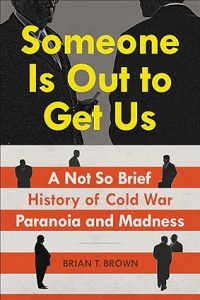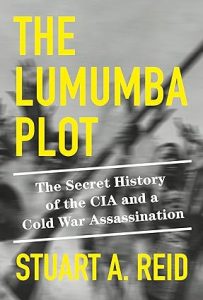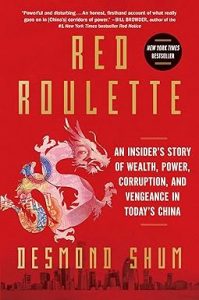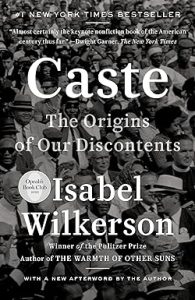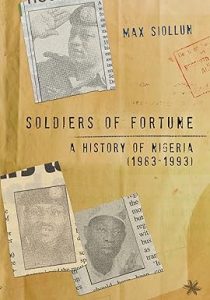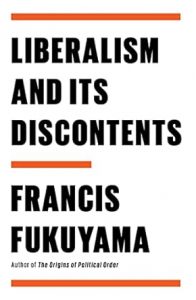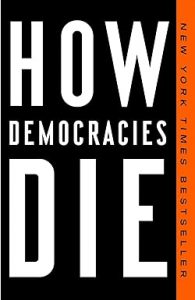Animal Farm
₦4,000.00Animal Farm is George Orwell’s brilliant political satire and allegorical fable about the corrupting effects of power. Published in 1945 it is, to this day, one of the most famous and influential works of fiction ever written.
When the old Major, a highly respected white boar, gathers his fellow farm animals to preach about freedom, rebellion and the evils of man, he incites a revolution that has been brewing for years. The animals drive out their drunken farmer, Mr Jones and create their own society which promises equality for all. Two scheming pigs, Napoleon and Snowball, appoint themselves leaders and what begins as a supposedly equalitarian community descends into an increasingly violent and hierarchical society permeated by lies and corruption.
The New China Playbook: Beyond Socialism and Capitalism
₦18,000.00China’s economy has been booming for decades now. A formidable and emerging power on the world stage, the China that most Americans picture is only a rough sketch, based on American news coverage, policy, and ways of understanding.
Enter Keyu Jin: a world-renowned economist who was born in China, educated in the U.S., and is now a tenured professor at the London School of Economics. A person fluent in both Eastern and Western cultures, and a voice of the new generation of Chinese who represent a radical break from the past, Jin is uniquely poised to explain how China became the most successful economic story of our time, as it has shifted from primarily state-owned enterprise to an economy that is thriving in entrepreneurship, and participation in the global economy.
China’s economic realm is colorful and lively, filled with paradoxes and conundrums, and Jin believes that by understanding the Chinese model, the people, the culture and history in its true perspective, one can reconcile what may appear to be contradictions to the Western eye.
What follows is an illuminating account of a burgeoning world power, its past, and its potential future.
The Scandal Of The Century
₦19,000.00From one of the titans of twentieth-century literature, collected here for the first time: a selection of his journalism from the late 1940s to the mid-1980s–work that he considered even more important to his legacy than his universally acclaimed works of fiction.
“I don’t want to be remembered for One Hundred Years of Solitude or for the Nobel Prize but rather for my journalism,” Gabriel García Márquez said in the final years of his life. And while some of his journalistic writings have been made available over the years, this is the first volume to gather a representative selection from across the first four decades of his career–years during which he worked as a full-time, often muckraking, and controversial journalist, even as he penned the fiction that would bring him the Nobel Prize in 1982.
Here are the first pieces he wrote while working for newspapers in the coastal Colombian cities of Cartagena and Barranquilla . . . his longer, more fictionlike reportage from Paris and Rome . . . his monthly columns for Spain’s El País. And while all the work points in style, wit, depth, and passion to his fiction, these fifty pieces are, more than anything, a revelation of the writer working at the profession he believed to be “the best in the world.”
Nine Lives
₦35,000.00“Nine Lives” offers a deeply personal perspective on Nigeria’s military history, particularly during the regimes of Muhammadu Buhari and Sani Abacha. These periods were marked by egregious human rights violations, economic struggles, and social unrest, and through his memoir, Bello-Fadile provides a unique lens through which to better understand this complex chapter in Nigeria’s past.
The Prince
₦15,000.00That Machiavelli’s name has become synonymous with cold-eyed political calculation only heightens the intrinsic fascination of The Prince—the world’s preeminent how-to manual on the art of getting and keeping power and one of the literary landmarks of the Italian Renaissance.
Written in a vigorous, straightforward style that reflects its author’s realism, this treatise on states, statecraft, and the ideal ruler is essential reading for anyone seeking to understand how human society actually works.
Someone Is Out To Get Us
₦20,000.00In Someone Is Out to Get Us, Brian T. Brown explores the delusions, absurdities, and best-kept secrets of the Cold War, during which the United States fought an enemy of its own making for over forty years — and nearly scared itself to death in the process. The nation chose to fear a chimera, a rotting communist empire that couldn’t even feed itself, only for it to be revealed that what lay behind the Iron Curtain was only a sad Potemkin village.
In fact, one of the greatest threats to our national security may have been our closest ally. The most effective spy cell the Soviets ever had was made up of aristocratic Englishmen schooled at Cambridge. Establishing a communist peril but lacking proof, J. Edgar Hoover became our Big Brother, and Joseph McCarthy went hunting for witches. Richard Nixon stepped into the spotlight as an opportunistic, ruthless Cold Warrior; his criminal cover-up during a dark presidency was exposed by a Deep Throat in a parking garage.
Someone Is Out to Get Us is the true and complete account of a long-misunderstood period of history during which lies, conspiracies, and paranoia led Americans into a state of madness and misunderstanding, too distracted by fictions to realize that the real enemy was looking back at them in the mirror the whole time.
The Lumumba Plot
₦30,000.00It was supposed to be a moment of great optimism, a cause for jubilation. The Congo was at last being set free from Belgium—one of seventeen countries to gain independence in 1960 from ruling European powers. At the helm as prime minister was charismatic nationalist Patrice Lumumba. Just days after the handover, however, the Congo’s new army mutinied, Belgian forces intervened, and Lumumba turned to the United Nations for help in saving his newborn nation from what the press was already calling “the Congo crisis.” Dag Hammarskjöld, the tidy Swede serving as UN secretary-general, quickly arranged the organization’s biggest peacekeeping mission in history. But chaos was still spreading. Frustrated with the fecklessness of the UN and spurned by the United States, Lumumba then approached the Soviets for help—an appeal that set off alarm bells at the CIA. To forestall the spread of Communism in Africa, the CIA sent word to its station chief in the Congo, Larry Devlin: Lumumba had to go.
Within a year, everything would unravel. The CIA plot to murder Lumumba would fizzle out, but he would be deposed in a CIA-backed coup, transferred to enemy territory in a CIA-approved operation, and shot dead by Congolese assassins. Hammarskjöld, too, would die, in a mysterious plane crash en route to negotiate a cease-fire with the Congo’s rebellious southeast. And a young, ambitious military officer named Joseph Mobutu, who had once sworn fealty to Lumumba, would seize power with U.S. help and misrule the country for more than three decades. For the Congolese people, the events of 1960–61 represented the opening chapter of a long horror story. For the U.S. government, however, they provided a playbook for future interventions.
Red Roulette
₦14,000.00As Desmond Shum was growing up impoverished in China, he vowed his life would be different. Through hard work and sheer tenacity he earned an American college degree and returned to his native country to establish himself in business. There, he met his future wife, the highly intelligent and equally ambitious Whitney Duan who was determined to make her mark within China’s male-dominated society. Whitney and Desmond formed an effective team and, aided by relationships they formed with top members of China’s Communist Party, the so-called red aristocracy, he vaulted into China’s billionaire class. Soon they were developing the massive air cargo facility at Beijing International Airport, and they followed that feat with the creation of one of Beijing’s premier hotels. They were dazzlingly successful, traveling in private jets, funding multi-million-dollar buildings and endowments, and purchasing expensive homes, vehicles, and art.
But in 2017, their fates diverged irrevocably when Desmond, while residing overseas with his son, learned that his now ex-wife Whitney had vanished along with three coworkers.
This vivid, explosive memoir shows “how the Chinese government keeps business in line—and what happens when businesspeople overstep” (The New York Times) and is a “singular, highly readable insider account of the most secretive of global powers” (The Spectator).
Caste
₦17,000.00In this brilliant book, Isabel Wilkerson gives us a masterful portrait of an unseen phenomenon in America as she explores, through an immersive, deeply researched, and beautifully written narrative and stories about real people, how America today and throughout its history has been shaped by a hidden caste system, a rigid hierarchy of human rankings.
Beyond race, class, or other factors, there is a powerful caste system that influences people’s lives and behavior and the nation’s fate. Linking the caste systems of America, India, and Nazi Germany, Wilkerson explores eight pillars that underlie caste systems across civilizations, including divine will, bloodlines, stigma, and more. Using riveting stories about people—including Martin Luther King, Jr., baseball’s Satchel Paige, a single father and his toddler son, Wilkerson herself, and many others—she shows the ways that the insidious undertow of caste is experienced every day. She documents how the Nazis studied the racial systems in America to plan their outcasting of the Jews; she discusses why the cruel logic of caste requires that there be a bottom rung for those in the middle to measure themselves against; she writes about the surprising health costs of caste, in depression and life expectancy, and the effects of this hierarchy on our culture and politics. Finally, she points forward to ways America can move beyond the artificial and destructive separations of human divisions, toward hope in our common humanity.
Original and revealing, Caste: The Origins of Our Discontents is an eye-opening story of people and history, and a reexamination of what lies under the surface of ordinary lives and of American life today.
Soldiers Of Fortune
₦7,000.00‘This book is the story of Nigeria’s political journey between December 31, 1983 and August 27, 1993. This is the story of how things fell apart.’
The years between 1983 and 1993 were momentous for Nigeria. Military rule was a time of increased violence, rampant corruption, coups, coup plotting and coup baiting. It moulded the conditions and character of Nigeria today, forcing seismic changes on the political, economic and religious landscape that nearly tore the country apart on several occasions.
Soldiers of Fortune is a fast-paced and thrilling narrative of the major events of the Buhari and Babangida era. The book draws on previously uncovered observations from interviews conducted with insiders (including a former member of the Brigade of Guards and Nigerian Airways personnel who witnessed the attempted kidnap of Umaru Dikko), to compile step-by-step dramatic reconstructions of disputed events and intrigues. Siollun’s fresh perspective challenges preconceived views to reveal the true story behind controversies of the period: the annulment of the June 12 election, the dubious execution of Mamman Vatsa, the foiled kidnapping of Umaru Dikko, the Orkar coup and the inconclusive case of the assassination of Dele Giwa.
Historian Max Siollun gives an intimate, fly-on-the-wall portrait of the major events and dramatis personae of the period. He paints a vivid picture of leaders such as Ibrahim Babangida, whose ‘amiable personality, effusive charm and warm bonhomie’ distracted from his determined grip on power, political cunning and retention of detested laws. Siollun also relates anecdotes from how ‘pillow talk’ had a role in the 1983 coup, to the troubled final hours of the condemned Mamman Vatsa, childhood friend of Babangida. We are reminded of the important role played by civilians in supporting and sponsoring successive coups, and as such, we are forced to reassess apparent heroes such as the business tycoon, M.K.O Abiola.
Alongside its close-up, dramatised narrative, Soldiers of Fortune also provides clear and detailed analysis of the period, revealing Nigerians’ complicity in the corruption of everyday life. It makes use of charts, lists and neatly delineated sections to pick apart the complex and often murky details of military rule, effectively demonstrating how the key events and protagonists of the period had a long-lasting impact which still resonates throughout Nigeria today.
Both gripping and informative, Soldiers of Fortune is a must-read for all Nigerians and Nigeria-watchers. Its dramatic narrative style and clear attention to detail will engage casual, journalistic and academic readers alike.
Liberalism And Its Discontents
₦13,000.00Classical liberalism is in a state of crisis. Developed in the wake of Europe’s wars over religion and nationalism, liberalism is a system for governing diverse societies, which is grounded in fundamental principles of equality and the rule of law. It emphasizes the rights of individuals to pursue their own forms of happiness free from encroachment by government.
It’s no secret that liberalism didn’t always live up to its own ideals. In America, many people were denied equality before the law. Who counted as full human beings worthy of universal rights was contested for centuries, and only recently has this circle expanded to include women, African Americans, LGBTQ+ people, and others. Conservatives complain that liberalism empties the common life of meaning. As the renowned political philosopher Francis Fukuyama shows in Liberalism and Its Discontents, the principles of liberalism have also, in recent decades, been pushed to new extremes by both the right and the left: neoliberals made a cult of economic freedom, and progressives focused on identity over human universality as central to their political vision. The result, Fukuyama argues, has been a fracturing of our civil society and an increasing peril to our democracy.
In this short, clear account of our current political discontents, Fukuyama offers an essential defense of a revitalized liberalism for the twenty-first century.
How Democracies Die
₦14,500.00Donald Trump’s presidency has raised a question that many of us never thought we’d be asking: Is our democracy in danger? Harvard professors Steven Levitsky and Daniel Ziblatt have spent more than twenty years studying the breakdown of democracies in Europe and Latin America, and they believe the answer is yes. Democracy no longer ends with a bang—in a revolution or military coup—but with a whimper: the slow, steady weakening of critical institutions, such as the judiciary and the press, and the gradual erosion of long-standing political norms. The good news is that there are several exit ramps on the road to authoritarianism. The bad news is that, by electing Trump, we have already passed the first one.
Drawing on decades of research and a wide range of historical and global examples, from 1930s Europe to contemporary Hungary, Turkey, and Venezuela, to the American South during Jim Crow, Levitsky and Ziblatt show how democracies die—and how ours can be saved.










